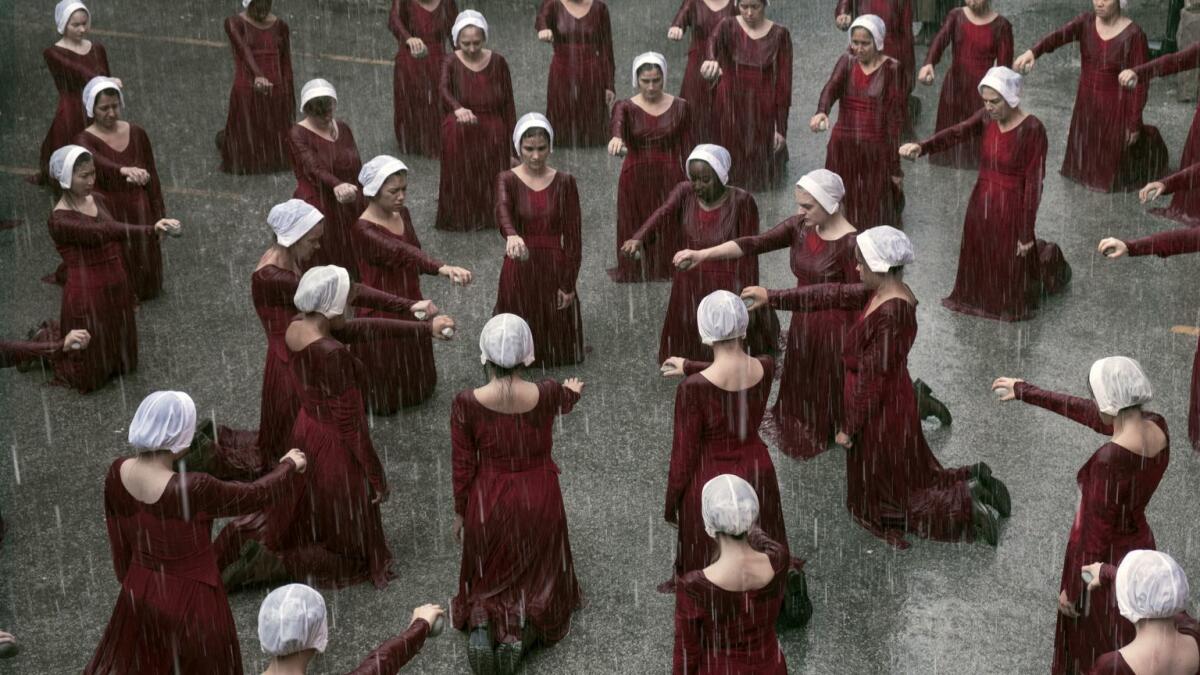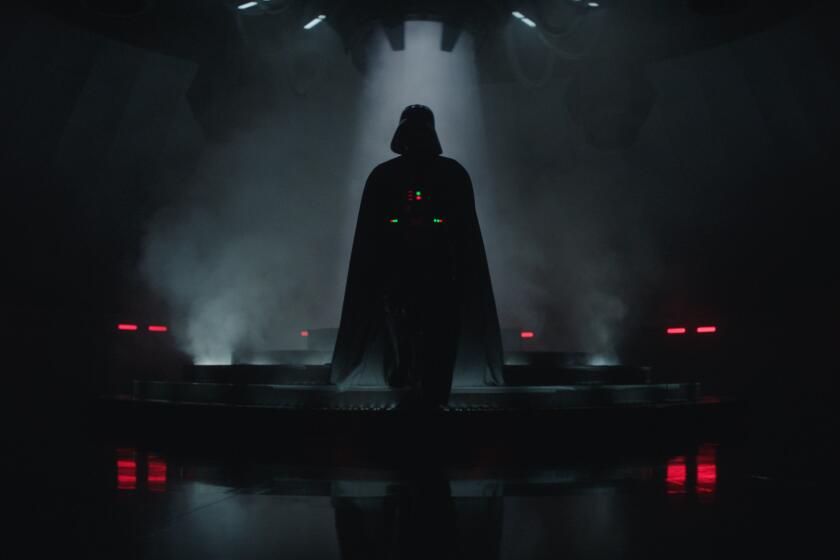Entertainment executives tout ‘buckets’ of money, despite digital competition

- Share via
Entertainment industry heavyweights made an upbeat case for their business at the Milken Institute Global Conference in Beverly Hills on Tuesday morning, despite fast-growing competition from online video networks such as Netflix and Amazon.com.
Instead of dwelling on the challenges facing traditional entertainment business models, executives from Metro-Goldwyn-Mayer, Paramount Pictures and NBC Entertainment focused on the opportunities inherent in an increasingly global and online-focused market.
MGM Television President Mark Burnett, playing the part of studio evangelist, spoke repeatedly about the “buckets” of money waiting for the companies that make movies and TV shows that strike a chord with audiences — and the woes that await those that don’t.
“Basically, if you’re not a hit maker in what we do, you’re in big trouble,” said Burnett, whose company produces shows such as “Survivor,” “The Voice” and “The Handmaid’s Tale.”
“Once you have something that emotionally connects … money is falling from the sky, globally,” Burnett said. “That money is falling into our buckets, if we have the most connective content in the world.”
Streaming platforms are providing more outlets for hit shows, the panelists noted. For example, “The Handmaid’s Tale,” the Emmy-winning drama produced by MGM, found a large audience on Hulu, which is owned by a consortium of media companies.
Rival Netflix, which is spending billions of dollars a year on original movies and shows and has aggressively pursued global distribution rights for content, also figured heavily into the discussion. The panel featured YouTube’s original programming head, Susanne Daniels; Lionsgate Television Chairman Kevin Beggs; Paramount Pictures Chief Executive Jim Gianopulos; and NBC Entertainment Chairman Robert Greenblatt.
Greenblatt brushed off the prospect of greater competition.
“I look at it as an opportunity,” Greenblatt said. “It just makes us raise our game and put shows on our network that are interesting to people around the world. At the same time, our company needs to grow its international footprint as well.”
To that end, NBC’s parent company, Comcast Corp., recently formalized its $30.7 billion for European TV network Sky, in a direct challenge to Rupert Murdoch’s 21st Century Fox, which is also trying to buy the broadcaster. Walt Disney Co. is trying to buy assets from Fox, which already owns 39% of Sky.
“I would say we’re going to move forward through the process very collegially,” said Greenblatt, in a response to a remark by the moderator about the “arm-wrestling” over Sky.
Another major topic at the Milken panel was data collection, which has become a growing focus of marketing departments at studios and networks trying to get their movies and TV shows seen amid the deluge of programming.
Burnett, noting the opportunity to use consumer data collected from smartphones in order to market shows, admitted some of the technology is disturbing.
“We’re not in a world of just throwing tons of money at something and hoping it finds” an audience, Burnett said. “Some of it’s a bit scary. There’s companies we hire that know your ISP address and, while your smartphone is on, it can hear what’s on your television.
Paramount’s Gianopulos, who is trying to engineer a turnaround at the storied studio, spoke about the company’s decision to sell a high-profile movie, “The Cloverfield Paradox,” to Netflix. The streaming giant launched the film on its service the night of the Super Bowl.
Gianopulos said the deal arose from a unique circumstance that allowed the studio to make money from the movie without a theatrical release. Just don’t expect a similar move anytime soon.
“It was one of those unique moments and a confluence of interests,” Gianopulos said. “It’s not something we would do every day, and I don’t know if we’ll do it again.”
More to Read
Inside the business of entertainment
The Wide Shot brings you news, analysis and insights on everything from streaming wars to production — and what it all means for the future.
You may occasionally receive promotional content from the Los Angeles Times.











